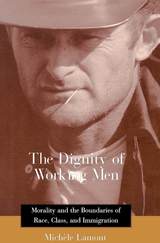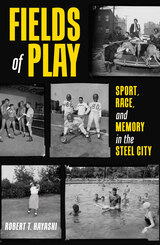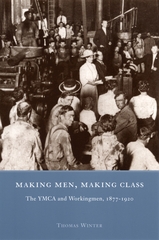
Michèle Lamont takes us into the world inhabited by working-class men--the world as they understand it. Interviewing black and white working-class men who, because they are not college graduates, have limited access to high-paying jobs and other social benefits, she constructs a revealing portrait of how they see themselves and the rest of society.
Morality is at the center of these workers' worlds. They find their identity and self-worth in their ability to discipline themselves and conduct responsible but caring lives. These moral standards function as an alternative to economic definitions of success, offering them a way to maintain dignity in an out-of-reach American dreamland. But these standards also enable them to draw class boundaries toward the poor and, to a lesser extent, the upper half. Workers also draw rigid racial boundaries, with white workers placing emphasis on the "disciplined self" and blacks on the "caring self." Whites thereby often construe blacks as morally inferior because they are lazy, while blacks depict whites as domineering, uncaring, and overly disciplined.
This book also opens up a wider perspective by examining American workers in comparison with French workers, who take the poor as "part of us" and are far less critical of blacks than they are of upper-middle-class people and immigrants. By singling out different "moral offenders" in the two societies, workers reveal contrasting definitions of "cultural membership" that help us understand and challenge the forms of inequality found in both societies.

Americans love sports, from neighborhood pickup basketball to the National Football League, and everything in between. While no city better demonstrates the connection between athletic games and community than Pittsburgh, Pennsylvania, the common association of the city’s professional sports teams with its blue-collar industrial past illustrates a white nostalgic perspective that excludes the voices of many who labored in the mines and mills and played on local fields. In this original and lyrical history, Robert T. Hayashi addresses this gap by uncovering and sharing overlooked tales of the region’s less famous athletes: Chinese baseball players, Black women hunters, Jewish summer campers, and coal miner soccer stars. These athletes created separate spaces of play while demanding equal access to the region’s opportunities on and off the field. Weaving together personal narrative with accounts from media, popular culture, legal cases, and archival sources, Fields of Play details how powerful individuals and organizations used recreation to promote their interests and shape public memory. Combining this rigorous archival research with a poet’s voice, Hayashi vividly portrays how coal towns, settlement houses, municipal swimming pools, state game lands, stadia, and the city’s landmark rivers were all sites of struggle over inclusion and the meaning of play in the Steel City.

Starting in the 1870s, the leaders ("secretaries") of the YMCA sought to reduce political radicalism and labor unrest by instilling new ideals of manliness among workers. By involving workingmen in a range of activities on the job and off, the YMCA hoped to foster team spirit, moral conduct, and new standards of manhood that would avoid conflict and instead encourage cooperation along the lines of a Christian, pious manliness. In their efforts to make better men, the secretaries of the YMCA also crafted new ideals of middle-class manliness for themselves that involved a sense of mission and social purpose. In doing so, they ended up "making" class, too, as they began to speak a language of manhood structured by class differences.

“This is a brilliant novel, written with language that crackles. The relationships are treated with force and poignancy. The power of the story is its authenticity and the character’s compelling conversion. He begins as a boy who refuses to accept responsibility, becomes the husband who longs for freedom, and at last the man who feels God’s grace in spite of himself and the self-destructive path that has beckoned to him with a siren’s allure. This brings a voice to Mormon literature that is clearly worth honoring.” —Marilyn Brown, author of The Wine Dark Sea of Grass
READERS
Browse our collection.
PUBLISHERS
See BiblioVault's publisher services.
STUDENT SERVICES
Files for college accessibility offices.
UChicago Accessibility Resources
home | accessibility | search | about | contact us
BiblioVault ® 2001 - 2024
The University of Chicago Press









